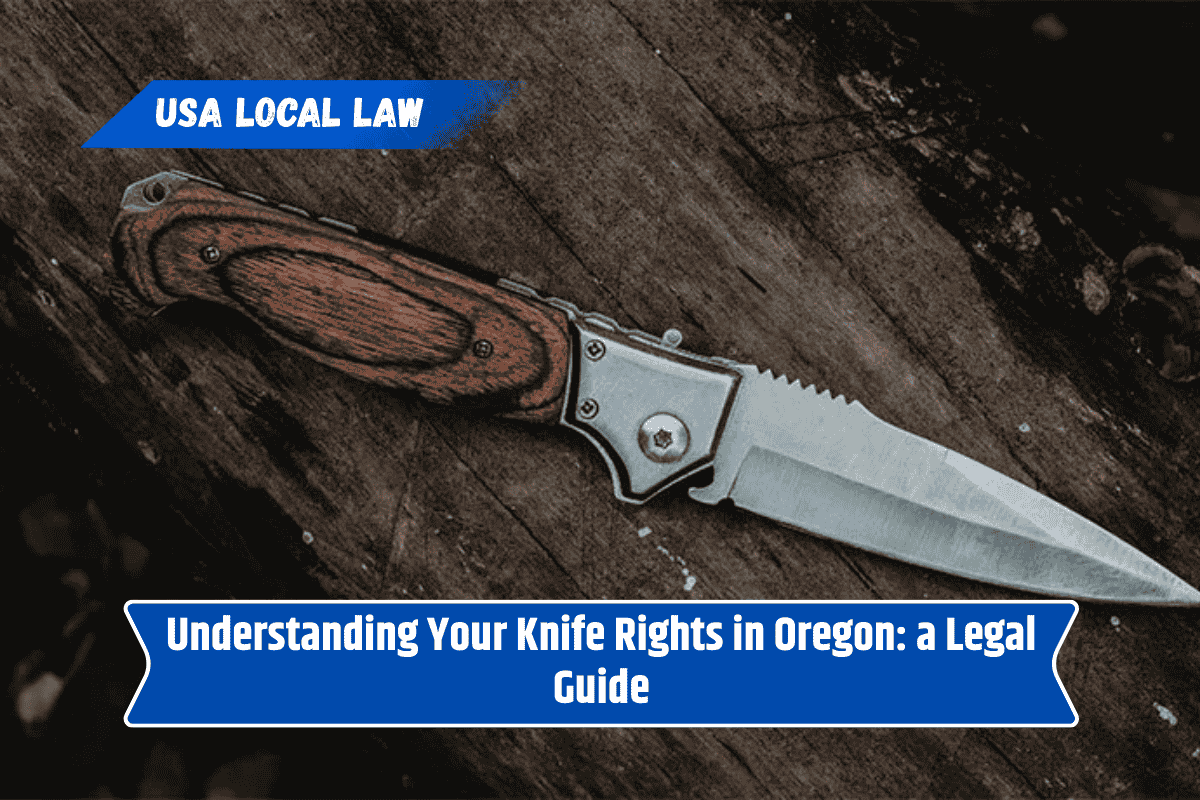Carrying a knife might seem like a simple personal choice, but in Oregon, like many other states, there are specific laws that control what kind of knives you can own or carry—and where and how you can carry them.
Whether you’re an outdoor enthusiast, a chef, or someone who carries a pocketknife for daily tasks, it’s important to know your rights and stay within the law.
This guide breaks down Oregon’s knife laws in simple, easy-to-understand terms so you can stay informed and avoid legal trouble.
Are Knives Legal in Oregon?
Yes, owning and carrying knives is generally legal in Oregon. But there are some important rules about types of knives, how you carry them, and where you carry them.
Here’s a quick breakdown:
| Knife Type | Legal to Own | Legal to Open Carry | Legal to Conceal Carry |
|---|---|---|---|
| Pocketknife | Yes | Yes | Yes |
| Fixed blade knife | Yes | Yes | No (in some cities) |
| Switchblade | Yes | Yes | No |
| Butterfly knife (balisong) | Yes | Yes | No |
| Dirk, dagger, or stiletto | Yes | Yes | No |
| Gravity knife | Yes | Yes | No |
Open Carry vs. Concealed Carry
Open Carry: You can legally carry almost any kind of knife openly in Oregon. This means the knife is visible, like on your belt or outside your pocket.
Concealed Carry: Oregon law is stricter when it comes to carrying certain knives hidden from view. You cannot conceal carry weapons that are considered “dangerous” like switchblades, dirks, daggers, or balisongs.
If you’re caught carrying a restricted knife concealed, you could be charged with Unlawful Possession of a Weapon.
Which Knives Are Considered ‘Dangerous Weapons’?
Oregon law doesn’t list all dangerous knives by name, but courts have ruled that the following are usually considered dangerous:
Dirks and daggers
Switchblades
Butterfly knives
Any knife clearly designed for fighting, not utility
If you’re unsure whether your knife could be considered a “dangerous weapon,” it’s safer to carry it openly.
Age Restrictions
There’s no specific state law in Oregon that sets a minimum age for owning or carrying a knife. However, many schools and public places have strict rules, and minors could still face legal issues if found with certain knives, especially in sensitive areas.
Where You Can’t Carry Knives
Even if a knife is legal, there are places where you cannot carry it at all, such as:
Schools (including college campuses)
Federal buildings
Courthouses
Airports and airplanes
Private property where knives are banned
Breaking these rules can lead to serious charges, especially if the knife is considered a weapon.
Local Laws May Vary
Oregon has a statewide knife law, but some cities have their own local rules. For example:
Portland has stricter laws against concealed carry of certain knives.
Eugene and other cities may also have specific rules, especially regarding fixed blades.
Always check your city or county laws before carrying a knife, especially if you’re traveling across Oregon.
Tips to Stay Within the Law
Carry pocketknives or utility knives for daily use.
Avoid carrying large or combat-style knives unless needed for outdoor activities.
If you carry a fixed-blade or other large knife, keep it visible.
Don’t carry knives on school grounds or government buildings.
Be extra careful when crossing city lines—local laws may change.
Oregon is more knife-friendly than many other states, but that doesn’t mean anything goes. Knowing which knives are allowed, how you can carry them, and where you can bring them helps you stay safe and legal.
If you carry a knife regularly, understanding these laws isn’t just smart—it’s essential. When in doubt, keep it visible, practical, and always check local laws before carrying.
